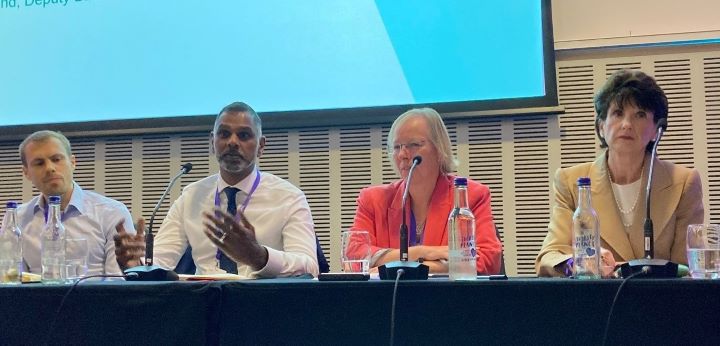 Audit firms faced heavy criticism from audience members at a CIPFA conference fringe meeting, with suggestions that there needs to be statutory deadlines for accounts to be finalised.
Audit firms faced heavy criticism from audience members at a CIPFA conference fringe meeting, with suggestions that there needs to be statutory deadlines for accounts to be finalised.
Currently there is a requirement for local authorities to publish audited accounts by a particular date (30 November for 2021/22 accounts), but this is not a statutory deadline. A number of audience members, including section 151 officers, argued that introducing a stricter regime would encourage auditors to finish their work more quickly.
However, panel members at the session, on local government financial reporting, were less keen.
Suresh Patel, a partner at audit firm Mazars, pointed out the “perfect storm” of challenges currently being faced in local audit – including problems with recruiting and retaining auditors, increased complexity caused by local government’s move to commercialisation and capacity issues in council finance functions.
A statutory deadline would not eliminate these issues, Patel told delegates at the fringe event at CIPFA’s annual conference in Liverpool. He would only sign off accounts when he was “good and ready”.
“[To do otherwise] would be in breach of my own professional standards, ethical standards, and you wouldn’t want me to issue an opinion that wasn’t the right opinion.”
Audit delays
Delays in local audit have been particularly severe in recent years, with only 9% of 2020/21 audits completed by the 30 September publishing date. And some authorities still have their 2019/20 accounts open.
Michael Sunderland, deputy director for government financial reporting at the Treasury, said that “timeliness is an aspect of quality” and compared local government with central government, where there are statutory deadlines for finalising accounts.
He said this did create incentives to focus on timeliness, but admitted that the deadline for the most recent set of Whole of Government Accounts had been missed.
“I am not sure whether a statutory deadline is the right incentive [for local government], but there need to be incentives,” Sunderland told delegates.
Sunderland said that an important development was the confirmation that the Audit Reporting and Governance Authority (the successor body to the Financial Reporting Council) will be the “system leader” for local audit, with Neil Harris as the first director of local audit.
The FRC was represented on the panel by Dawn Dickson, director of professional oversight. She agreed that “deadlines are important, otherwise how do you survive in any sort of business environment”.
Dickson added that if a resolution could not be reached in a timely way between the auditor and the local authority, then there was always the option of qualifying the accounts. “That is something that possibly a number of audit firms now are thinking they might have done in the past.”
It is incumbent on people like me and my firm, and other firms in the sector, to take the opportunity to ensure that we are building future leaders.
Two-year turnaround
Patel said that the past four years had been the most challenging he had faced professionally, but that he was an “optimist” and could see the situation turning round within two years.
Audit firms such as Mazars are seeking to recruit auditors from abroad, which he said brought challenges, but also opportunities.
“The vast majority of those people have chosen to come and work in public sector audit. They could have gone to corporate audit, but they chose [local audit] – because, like me, they believe in what we do and what we value.
“It is incumbent on people like me and my firm, and other firms in the sector, to take the opportunity to ensure that we are building future leaders.”
—————
FREE weekly newsletters
Subscribe to Room151 Newsletters
Room151 LinkedIn Community
Join here
Monthly Online Treasury Briefing
Sign up here with a .gov.uk email address
Room151 Webinars
Visit the Room151 channel













